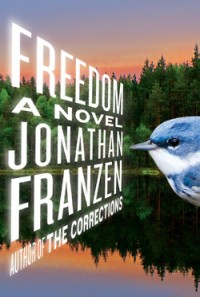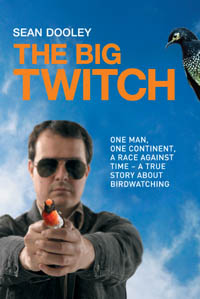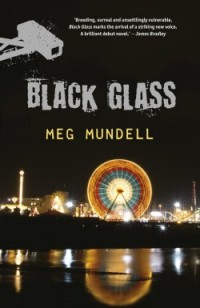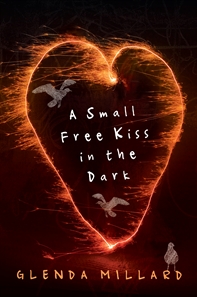Blog Archives
MWF podcast interview: Steve Hely
Do you know what it takes to become a famous novelist? Apparently, you only need a bunch of rules (including ‘Rule 9: At dull points include descriptions of delicious meals’), a desire to show your ex-girlfriend up at her wedding, and a guest appearance on Law and Order: SVU. Steve Hely’s How I Became a Famous Novelist has been described as ‘an expose of the world of books and writing’ and as ‘bulging with humour, fat with arch parody, obese with deft satire, each page deserving of a dog ear of commemoration’.
MWF blogger Estelle Tang spoke to Steve about comedy, the pain of writing, and how to tell a dud book from a good one.
Listen or Download audio here
Birds don’t have to be for anything: Jonathan Franzen and Sean Dooley on birds
 Jonathan Franzen is a renowned bird-watcher and conservationist, as is Sean Dooley (The Big Twitch). They spoke this afternoon to ABC Radio’s Michael Veitch (himself a keen bird-watcher) about their mutual passion. Is there something about the elusiveness of birds that attracts writers?
Jonathan Franzen is a renowned bird-watcher and conservationist, as is Sean Dooley (The Big Twitch). They spoke this afternoon to ABC Radio’s Michael Veitch (himself a keen bird-watcher) about their mutual passion. Is there something about the elusiveness of birds that attracts writers?
To kick off, Veitch polled audience members, who mostly proved at least either bird-watchers or Franzen/Dooley readers, if not a combination of both. For fairness’ sake, Veitch also asked ‘How many of you are bird watchers who have never heard of Jonathan Franzen or Sean Dooley?’ Two lone but brazen birders put their hands up and received an air-kiss from Franzen in response.
Audience bona fides having been ascertained, it was time to test the panellists, who went to the Werribee sewage farm yesterday (which Franzen called ‘one of the most beautiful places I’ve ever been’). Veitch reeled off a list of Victorian birds, and it turned out the intrepid travellers hadn’t seen very many (one particular species had been sighted ‘very distantly, through heat shimmers’, but Franzen joked ‘Yes, we missed almost everything’) even though the site is renowned for its birdlife: ‘25 kilometres of open poo ponds’ that Dooley said birds love. Apparently 370 species of birds have been sighted there in the past fifty years or so.
Writing is an isolating pastime, but, Veitch asked, is birding something you can enjoy doing with others? ‘More eyes means you see more stuff’, Franzen agreed, but it can also be done alone; ‘I prefer to be myself. It’s a great, great activity … who wants to go to a party when you can slip out and see a bird or two?’ Indeed, those hoping to see Franzen at MWF parties may be disappointed, as Dooley then happened to mention there was somewhere near Federation Square where they could slip out to see some avian life instead.
 Dooley agreed: ‘I basically go bird-watching for the birds, not for the bird-watchers.’ Not surprising from someone who blew his inheritance on buying a four-wheel drive and bird-watching for a year, an experience he wrote about in The Big Twitch: ‘It was a good chance to get out into nature.’
Dooley agreed: ‘I basically go bird-watching for the birds, not for the bird-watchers.’ Not surprising from someone who blew his inheritance on buying a four-wheel drive and bird-watching for a year, an experience he wrote about in The Big Twitch: ‘It was a good chance to get out into nature.’
Not only is it a chance to reconnect with nature, but bird-watching is also a pursuit that has changed the way Franzen responds to nature. Instead of approaching it as something that’s for him, for his contemplation – ‘Am I alone enough?’ – it’s now the habitat of the creatures he loves.
Do the writers write differently thanks to their interest in birds? Franzen: ‘More carefully … As a reader I turn off if I’m about to be subjected to too much appreciation of nature.’
Then to the cerulean warbler, the bird made arguably a thousand times more famous by its inclusion in Franzen’s latest novel, Freedom. Why did he decide to feature this bird, a ‘bluish, small and unintelligent looking’ one? ‘It’s arguably the fastest declining songbird in North America,’ Franzen explained, ‘and happens to have a stronghold in West Virginia’, where the novel is set. That location is ‘a dystopian vision of what America is becoming’, with the environmental destruction, out-of-town interested making money, and residents maintaining a relatively low quality of life. ‘It’s a pan-American bird,’ which winters in South America, and ‘it’s pretty’.
Veitch had purposely avoided asking his guests why birding was such an important pursuit for them, but by session’s end, Franzen had kind of answered it anyway: ‘I feel like it’s good to have something to do for my own sake – I have a Protestant work ethic that I can’t get away from except when I fall into a bird-watching trance.’ He’s become involved in bird conservation ‘as a way of justifying post hoc these days I spend for no other reason out in the bush other than it brings me pleasure’. Nevertheless, this doesn’t detract from the fact that birds are beloved and interesting qua birds: ‘Birds don’t have to be for anything.’
Reading Melbourne
I’ve been home now for a few days. After spending some weeks prodigally gadding about with other cities, I’ve needed some help against my post-holiday blues. Don’t get me wrong: I’ve always lived in Melbourne, and it has my love for now and ever. But its welcoming embrace has been winter-chilly, its kissing cheek cold, and I have needed a bit of encouragement to fall back in love with it.
 Luckily, Melbourne has no shortage of storytellers to assist with this reunion. In particular, there have recently been a few future-Melbourne books, extrapolating on existing geography and concerns to imagine a city strange and yet familiar. I recently had the pleasure of interviewing Meg Mundell, who was born in New Zealand but has lived in Melbourne for over a decade. Meg is the author of Black Glass, which envisions a near-future Melbourne (although AFL is still in evidence as the favourite sport, characters remember Cate Blanchett as an actress of yore).
Luckily, Melbourne has no shortage of storytellers to assist with this reunion. In particular, there have recently been a few future-Melbourne books, extrapolating on existing geography and concerns to imagine a city strange and yet familiar. I recently had the pleasure of interviewing Meg Mundell, who was born in New Zealand but has lived in Melbourne for over a decade. Meg is the author of Black Glass, which envisions a near-future Melbourne (although AFL is still in evidence as the favourite sport, characters remember Cate Blanchett as an actress of yore).
I read Black Glass a few months ago, but it popped up in my head again and again on my travels. A common topic in travellers’ conversations is politics; I did some patient explaining about the 2010 leadership spill to New Yorkers in dive bars, and I saw the church in Iceland that Italian Prime Minister Silvio Berlusconi disliked enough to suggest it should be bulldozed. Among all this talk of politicians, I couldn’t help but recall the government that Meg predicts for us in her novel. People who don’t have identity documentation, including children like Black Glass protagonists Tally and Grace, are unable to work legally, so they are forced into dangerous work on society’s fringes.
Not only is the government inhumanely blind to these people, but it also operates much like a corporation with a lot to lose. One character, Luella, a government official, trades newsworthy tidbits for control over how new policies will be represented by her reporter allies. When I asked Meg what Luella’s government wanted, she said: ‘To be re-elected’. This comment brought to mind not something from our possible future, but something fixed in our history: last year’s national election, in which Labor’s pre-election performance was criticised for its hollow tactics. But it’s not all doom and gloom in Black Glass. Lost as they are, Tally and Grace meet some people who help them along the way.
And it’s this idea of support and friendship for marginalised — indeed, homeless — people that first sparked the idea for Glenda  Millard’s A Small Free Kiss in the Dark, a young adult book that has been shortlisted for and won many awards. Young Skip runs away from school only to find himself in a city suddenly besieged by war. He befriends a homeless man named Billy, and an even younger boy called Max. Together they help each other to survive the onset of planes, soldiers and isolation.
Millard’s A Small Free Kiss in the Dark, a young adult book that has been shortlisted for and won many awards. Young Skip runs away from school only to find himself in a city suddenly besieged by war. He befriends a homeless man named Billy, and an even younger boy called Max. Together they help each other to survive the onset of planes, soldiers and isolation.
Though A Small Free Kiss in the Dark is set in a city that is never named, it contains hints that a Melburnian would easily take. I was moved by the little band’s pursuit of refuge through underground train passages, in a state library and in a fun fair that I had no trouble imagining as an abandoned Luna Park.
In non-fiction Melbourne reads, I’m looking forward to Sophie Cunningham’s Melbourne, due out in August.
What are your favourite Melbourne books?
“I was able to play with the truth”: Creating History
 A friend of mine is at this moment in Iceland, digging through library rooms, sneezing from archival dust, and loving every moment of it. She is doing research for a historical novel, based on the life of an Icelandic woman who lived in the 1800s. This intrepid dipping into the history and, indeed, mind, of a person long gone is an experience shared by Peter Rose, Lisa Lang and Michael Meehan
A friend of mine is at this moment in Iceland, digging through library rooms, sneezing from archival dust, and loving every moment of it. She is doing research for a historical novel, based on the life of an Icelandic woman who lived in the 1800s. This intrepid dipping into the history and, indeed, mind, of a person long gone is an experience shared by Peter Rose, Lisa Lang and Michael Meehan
Peter Rose is well known for his memoir The Rose Boys. His latest offering is a novel, Roddy Parr, which tells the literary insider tale of Roddy Parr, amanuensis to lauded author David Anthem. In name, biographical and autobiographical writing are different to fiction. But writing fiction requires the same attention to detail, the same consciousness of a multifaceted and continous being. Rose says of his characters that he has to know ‘how they dress, what they read, who they sleep with … they must become vivid, plausible, almost historical’. They’re not passive creatures: ‘I hear them babbling away in my head’.
A few years ago, Lisa Lang published Chasing the Rainbow, a book on Edward.W. Cole, a significant and prolific figure in  publishing in the 1850s. She has now fictionalised Cole’s life in her novel Utopian Man. His history may be described as checkered – he sold lemonade in the gold rush fields, later sold pies, and once travelled to Adelaide in a wooden boat. He then put an advertisement in the newspaper for a wife: ‘She must be a spinster of 35 or 36 years of age,’ he declared. This was before he installed himself as a bookseller in Cole’s Book Arcade, which included a Chinese tea salon at the height of the anti-Chinese sentiment in Australia.
publishing in the 1850s. She has now fictionalised Cole’s life in her novel Utopian Man. His history may be described as checkered – he sold lemonade in the gold rush fields, later sold pies, and once travelled to Adelaide in a wooden boat. He then put an advertisement in the newspaper for a wife: ‘She must be a spinster of 35 or 36 years of age,’ he declared. This was before he installed himself as a bookseller in Cole’s Book Arcade, which included a Chinese tea salon at the height of the anti-Chinese sentiment in Australia.
What is it, Lang wondered, that fiction could offer this abundant, larger than life story? ‘It gets us inside the heads of the characters.’ The ‘intensity of the inner life’ is served better by fiction than non-fiction writing, she concluded. The public details of Cole’s life were there for the taking, but what of the more personal details, the childhood memories, the blush of feeling?
Michael Meehan has published four novels, the latest of which is Below the Styx. Martin Frobisher’s name is familiar to connoisseurs of Tudor history. But the newer Frobisher is more like a sleuth than a courtier (though he is interested in the art of lying); he’s searching earnestly for the truth about well-known Australian, Marcus Clarke. Earlier this year, the Meehan family celebrated their 100th year in the country up in the Mallee. Michael’s grandfather had insisted on a total break from the Irish Meehans, many of whom opposed his union with his chosen wife. With all that excitement in one’s background, it’s not surprising that Meehan has written about history, but not to rechart it – instead, ‘Hope, desire, dream and dread’ is the realm of the novelist. Documentary history ‘will take you a certain distance’, as will oral history (though it’s ‘notoriously unreliable’), but you must ‘fuse’ this research with sensation and feeling, because that’s why readers read – not facts.